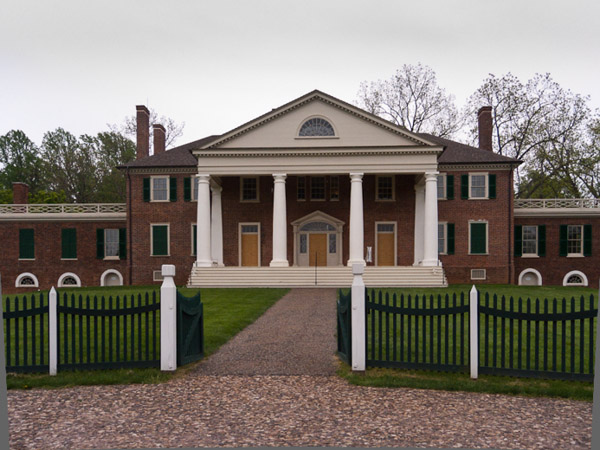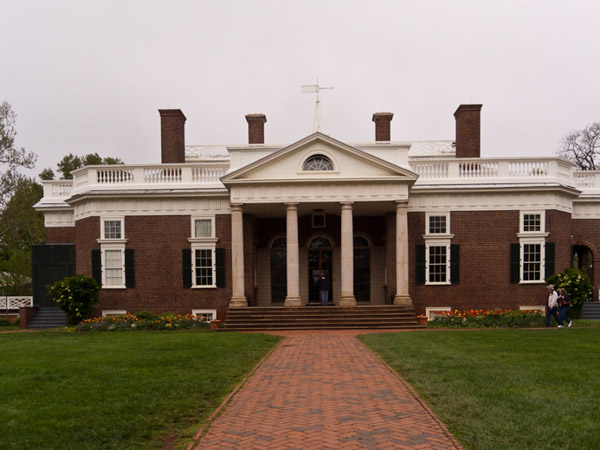Preface
Our trip to Colonial Virginia was a lesson on the history of the beginnings of our representative republic. The first six presidents of the United States were all Virginians, all were men of means or position. The risks were high, for if they lost, they surely would have been hanged as traitors. They were all well educated and resolved to have a nation devoid of a King. They drew upon their experiences with a King and took inspiration from earlier documents such as the Bill of Rights for the colony of Pennsylvania and the sixteen articles in the Virginia Declaration of Rights paper. The time they lived in is referred to as the Age of Enlightenment.
After listening to the arguments presented for and against the revolution the thinking comes that these arguments sound very much like the politics presented today by our different political positions. Many of our forefathers political dissertations sound modern if taken in a slightly different context. Immersed in this much early American history gives pause to the thoughts you may have had with regard to how this country was set up.
You may have considered that the British had a completely different take on the events leading up to the "Declaration of Independence". I suppose it a normal reaction to this much history in a short time, to ask the question, was there a straw that broke the camel's back? If there was it may have been the French and Indian war costs the British were looking to recover. The war was fought on the Colonists behalf over the rich delta farmland on the west side of the line of demarcation between Pennsylvania and Ohio. The British were taxing the items the rich and powerful coveted; paper and tea among others. Tax the rich sound familiar? Another item to think about was the fact that most of the movers and shakers declaring the rights of man were also slave owners. It's interesting how they balance these conflicting positions of justice.
The state of Virginia could easily be called the birthplace of our nation as many of our founding fathers were born there. Virginia is a wealth of early American history. A visit would excite anyone with an interest in the history of our nations beginnings.
Montpelier
 Our first stop was at the home of our fourth president James Madison. James Madison's father James Madison Sr. built a house on the land his father, Ambrose Madison, purchased in 1723 and started a plantation with African slaves in 1732. James Madison was born on March 16, 1751 at his mothers family home in Port Conway, Virginia.
Our first stop was at the home of our fourth president James Madison. James Madison's father James Madison Sr. built a house on the land his father, Ambrose Madison, purchased in 1723 and started a plantation with African slaves in 1732. James Madison was born on March 16, 1751 at his mothers family home in Port Conway, Virginia.
James Madison was Jefferson's Secretary of State, good friend and his personal lawyer. Madison has been called the father of our constitution, he wrote the "Bill of Rights" for the State of Pennsylvania and later it was incorporated into our constitution. The Constitution was adopted on September 17, 1787. The original Constitution Day.
James Madison Sr. was prosperous and able to have a live in tutor for his son, an option for the well to do. James Madison was sent to the Collage of New Jersey (Princeton) for a finishing education. Madison was a voracious reader and read every book in his fathers collection and endeavored to learn all about how to construct a country without a King. Madison's vision was a country with a constitution that would last and allow a free and prosperous country for generations.
On September 15, 1794 James Madison married Dolley Payne Todd. Dolley Madison defined the role of "First Lady" in the nation's new capitol of Washington D.C., setting political and social precedents that shaped the culture of the early republic and still followed to this day.
After James Madison's death at Montpelier at the age of 85 on June 28, 1836 Dolley Madison went bankrupt running the plantation. Dolley wound up selling the plantation and through a series of owners the house deteriorated into a state of near ruin. In 1901 William and Annie duPont purchased Montpelier and preserved the grounds. In 1984 the heirs of Marion duPont Scott transferred the property, as per her will, along with seven million dollars to the foundation that ultimately became the stewards of the property today. The house has been restored to its original condition and completed in 2008 for a cost of twenty four million dollars.
For motorcycle enthusiasts route 20 from Charlottesville to Montpelier is a twisting hilly road, very scenic, and the buggy road used by Thomas Jefferson to visit his friend James Madison. A short ride through history.
Monticello
 Thomas Jefferson (1743-1826) was our third president and authored the "Declaration of Independence" bought the Louisiana Purchase from Napoleon and set up the Louis and Clark expedition. Jefferson was chosen to write the "Declaration of Independence" for his writing skills as a wordsmith, his prose was remarkable and he added some one hundred new words to our lexicon.
Thomas Jefferson (1743-1826) was our third president and authored the "Declaration of Independence" bought the Louisiana Purchase from Napoleon and set up the Louis and Clark expedition. Jefferson was chosen to write the "Declaration of Independence" for his writing skills as a wordsmith, his prose was remarkable and he added some one hundred new words to our lexicon.
Jefferson's father was a land surveyor and as per custom at that time he was paid in land not currency. Upon his fathers passing Jefferson received 3000 acres of land. To add to his holdings his father-in-law willed Jefferson 132 slaves and about 2000 acres of land increasing his total on the plantation to 5000 acres. As a side note the custom of the time was that married women did not own property only their husbands.
Jefferson designed Monticello; he was an amateur architect, over the years he tore down and rebuilt areas of the house redesigning over a 40 year span. An interesting note of construction details regards the ornate crown and door/window moldings that were made of a composition or "Compo". Compo is a mixture of resins, animal hide, glue and chalk. The mixture was heated and pressed into molds. Upon installation the moldings were steam heated and bent into arches and architectural alignments then set into place. Most of the moldings are in their original condition with only minor settling cracks, this after two hundred years.
Over the coarse of years Jefferson owned about 600 slaves. The plantation kept around 200 slaves at any one time. The business side of the plantation dictated a skilled tradesman slave to be worth about $400.00 maybe $500.00 on the slave market. An average wage for a man in the late 1700's was $40.00 per year. Benjamin Franklin earned about $600.00 per year from his printing business. We later learned that plantations kept slave rolls with an accounting of each slaves worth. Slaves at the nearby Berkley Plantation had values of Zero for an indigent slave and up to $400.00 for a blacksmith. The average slave had a value of $100.00.
In retirement Thomas Jefferson founded and designed the University of Virginia. Just prior to Jefferson's death land values dropped about 66% and he co-signed for a large loan that went sour. When Jefferson died he was in debt for $107,000.00. To view the slideshow click here.